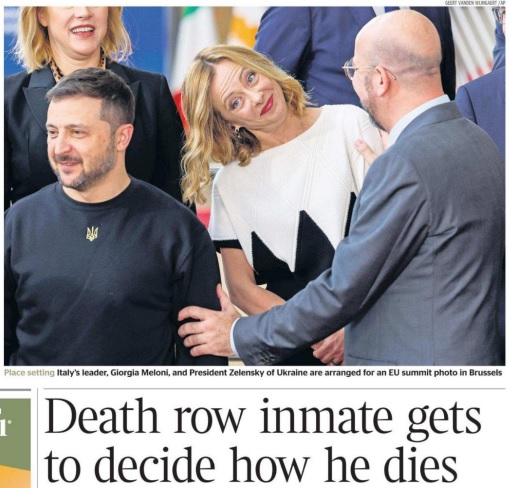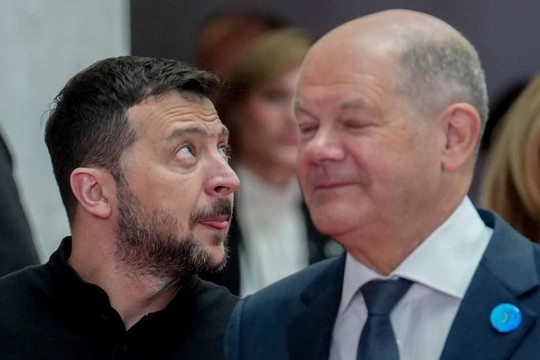Zelensky and Olaf Scholz
Photo: Reuters
Ukraine’s Zelensky wants an immediate invitation to join the alliance, but key capitals are balking, POLITICO informs.
Volodymyr Zelensky is running into a problem with his ‘victory plan’ based on Ukraine getting an invitation to join NATO — some of the alliance’s key members aren’t keen on that happening.
Germany and the U.S. are among the major powers slow-walking Zelensky’s call for an immediate invitation to join NATO, according to four U.S. and NATO officials and diplomats who were granted anonymity to share the latest internal discussions.
In his victory plan, Zelensky asked for an immediate invitation, but recognized that actually joining the alliance would only be possible after the war with Russia ends.
But key alliance members are worried about getting ensnared in a war with Russia.
In an interview with POLITICO, outgoing U.S. Ambassador to NATO Julianne Smith underlined the American position. “The alliance has not, to date, reached the point where it is prepared to offer membership or an invitation to Ukraine,” she said.
Zelensky acknowledged that Germany’s Chancellor Olaf Scholz — a major military provider for Ukraine, with weapons deliveries second only to America’s — won’t back him on the rapid NATO membership invitation.
Germany and the U.S. aren’t the only blockers.
Hungary and Slovakia are also resisting, but they come from a different starting point. Their current populist leaders take a generally pro-Kremlin line, with Hungarian Prime Minister Viktor Orbán blocking EU funds to arm Ukraine and quitting NATO’s program for sending lethal aid to Kyiv.
In a social media post, Orbán called Zelensky’s victory plan “more than terrifying.”
Slovakia’s Robert Fico warned earlier this month that letting Ukraine join NATO “would be a good basis for a third world war” and vowed that he would “never agree” to that.
There are also other countries not keen on moving rapidly on Kyiv’s request, but content to hide in the shadows.
“Countries like Belgium, Slovenia or Spain are hiding behind the U.S. and Germany. They are reluctant,” said one of the NATO officials. A second official said that countries “support it in the abstract but once it gets closer to materializing” they will start to balk at the idea more publicly.
That puts them at odds with countries like the Baltics and Poland, which are more enthusiastic.
Poland is in favor of “opening up a NATO perspective for Ukraine,” Polish PM Donald Tusk said during last week’s summit of EU leaders. “This has not changed. In this respect, we stand in solidarity with Ukraine.”
But those smaller countries are having to make way for the united front of Berlin and Washington.
Scholz told reporters during U.S. President Joe Biden’s visit to Berlin last week: “We are making sure that NATO does not become a party to the war, so that this war does not turn into a much greater catastrophe.”
The Biden administration’s position has long been that admission to NATO would occur after the war ends — but no timeline has been outlined to avoid enraging Russian leader Vladimir Putin.
…A very revealing caption under Zelensky's photo in the English press:

read more in our Telegram-channel https://t.me/The_International_Affairs

 10:21 26.10.2024 •
10:21 26.10.2024 •























